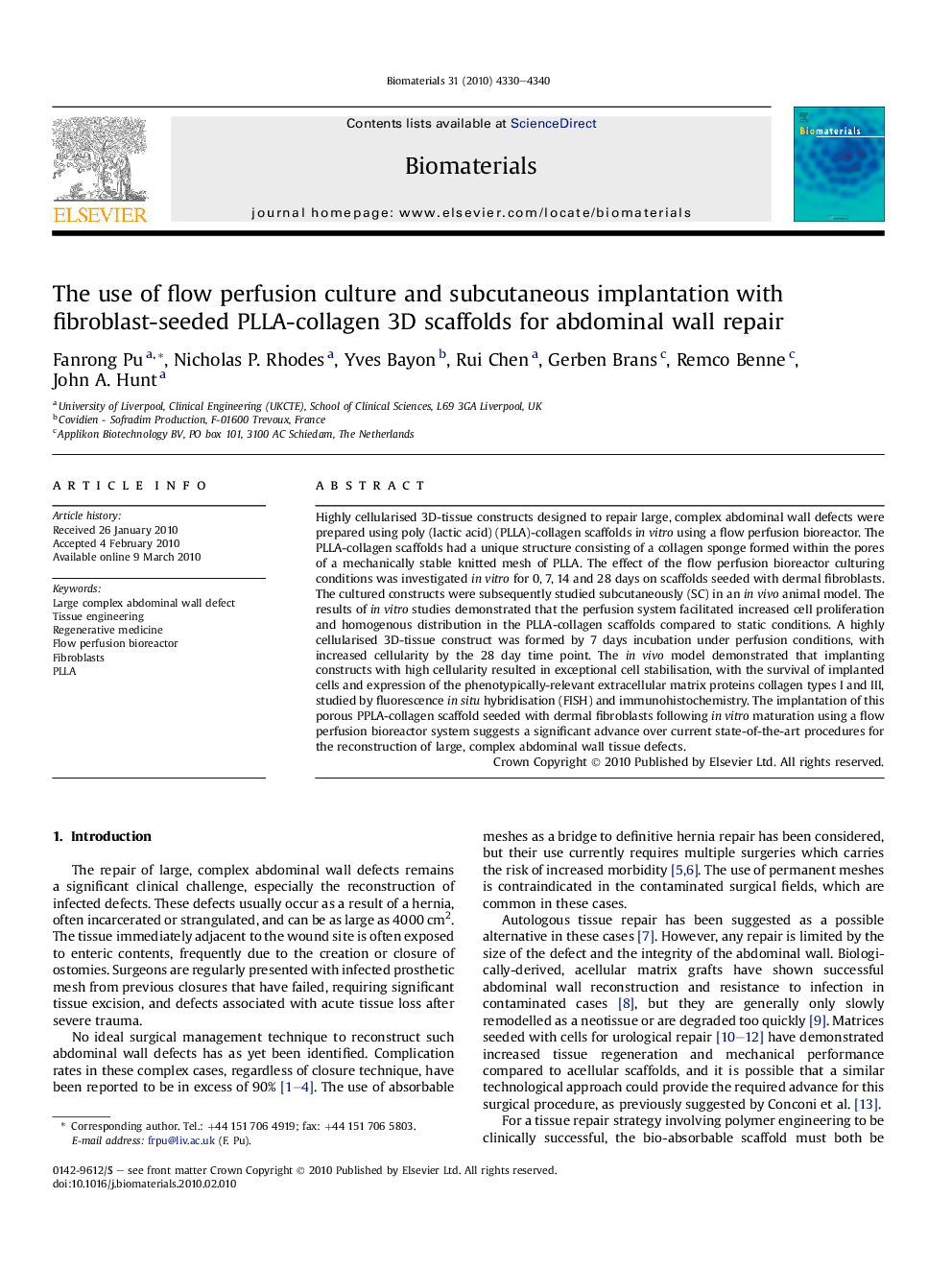| Article ID | Journal | Published Year | Pages | File Type |
|---|---|---|---|---|
| 8439 | Biomaterials | 2010 | 11 Pages |
Highly cellularised 3D-tissue constructs designed to repair large, complex abdominal wall defects were prepared using poly (lactic acid) (PLLA)-collagen scaffolds in vitro using a flow perfusion bioreactor. The PLLA-collagen scaffolds had a unique structure consisting of a collagen sponge formed within the pores of a mechanically stable knitted mesh of PLLA. The effect of the flow perfusion bioreactor culturing conditions was investigated in vitro for 0, 7, 14 and 28 days on scaffolds seeded with dermal fibroblasts. The cultured constructs were subsequently studied subcutaneously (SC) in an in vivo animal model. The results of in vitro studies demonstrated that the perfusion system facilitated increased cell proliferation and homogenous distribution in the PLLA-collagen scaffolds compared to static conditions. A highly cellularised 3D-tissue construct was formed by 7 days incubation under perfusion conditions, with increased cellularity by the 28 day time point. The in vivo model demonstrated that implanting constructs with high cellularity resulted in exceptional cell stabilisation, with the survival of implanted cells and expression of the phenotypically-relevant extracellular matrix proteins collagen types I and III, studied by fluorescence in situ hybridisation (FISH) and immunohistochemistry. The implantation of this porous PPLA-collagen scaffold seeded with dermal fibroblasts following in vitro maturation using a flow perfusion bioreactor system suggests a significant advance over current state-of-the-art procedures for the reconstruction of large, complex abdominal wall tissue defects.
